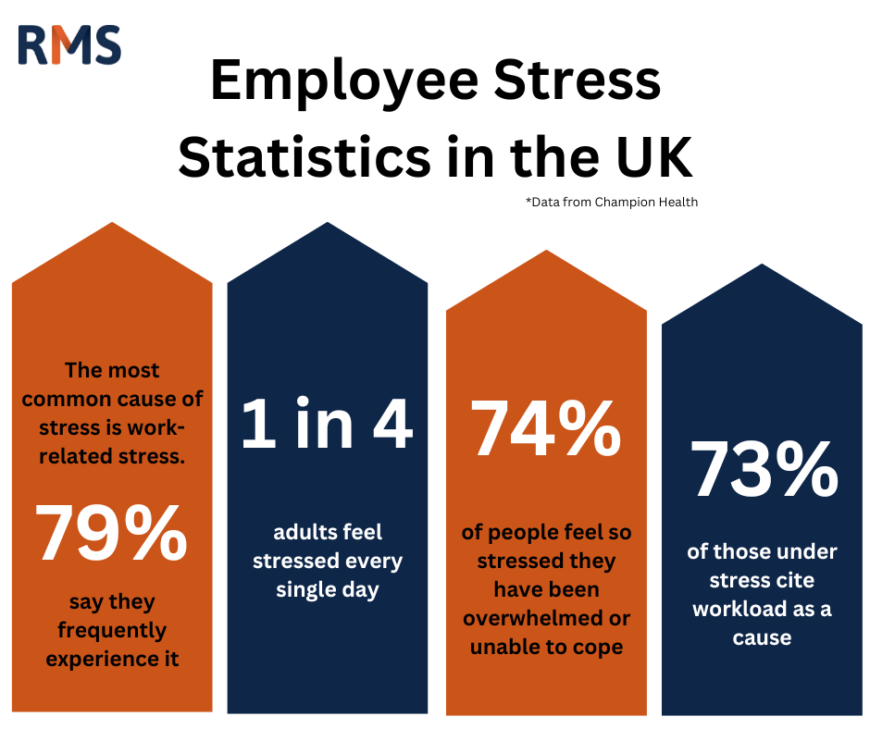The most common cause of stress is work-related stress, according to research published ahead of National Stress Awareness Day.
Many people cited workload as the cause, and under-35s reported being the most burnout 😞
As a recruiter, we are committed to helping candidates alleviate stress. Feeling some tension is normal — even if you love what you do — but there are steps you can take to keep job stress to a minimum. Here’s Employee Experience Coordinator Tanice’s top tips:
- Create a pre-work ritual
After scrambling to get the kids fed and off to school, combating road rage, and gulping down coffee in lieu of a healthy breakfast, many people arrive to work already stressed. This makes you more reactive to stress in the workplace. Start the day off right with planning and good nutrition; play your fave tunes while you make breakfast, and you might find that the stress of your job rolls off your back more easily.
- Get clear on your expectations for the day
A factor known to contribute to job burnout is unclear requirements for your day. If you don’t know exactly what is expected of you, or if the requirements for your role keep changing with little notice, you might become stressed. If you find yourself never knowing if what you are doing is enough, it may help to have a talk with your supervisor. You can take the time to go over expectations and discuss strategies for meeting them. This can relieve stress for both of you.
- Choose chunking over multitasking
There is a certain frazzled feeling that comes from splitting your focus and it doesn’t work well for most people. Instead of multitasking to stay on top of your tasks, try another cognitive strategy like chunking. Chunking is the concept of breaking up your day into larger chunks instead of reacting to constant interruptions. The more chunks of time you can devote to specific tasks, the fewer start-up moments you will have, and your efficiency and will productivity improve.
- Stretch or walk at lunch
Many people feel the ill effects of leading a sedentary lifestyle. You can combat the physical and mental effects of work stress by stretching or getting some exercise on your lunch break. If your schedule allows for it, you might try taking short exercise breaks throughout the day. This can help you blow off steam, lift your mood, and get into better shape.
- Rely on a strong support network
Keep in touch with trusted friends and family members to help cope with stressful work situations. Having people you can rely on during the tough times can alleviate some of the built-up tension, and when you feel emotionally supported, you’re better equipped to face difficulties. Coworkers, neighbours or friends can provide valuable camaraderie.
Remember, stress is a common experience, but it should be temporary, not permanent. If stress is not residing, consider looking for a new job role. Your work is important but so is your well-being.



